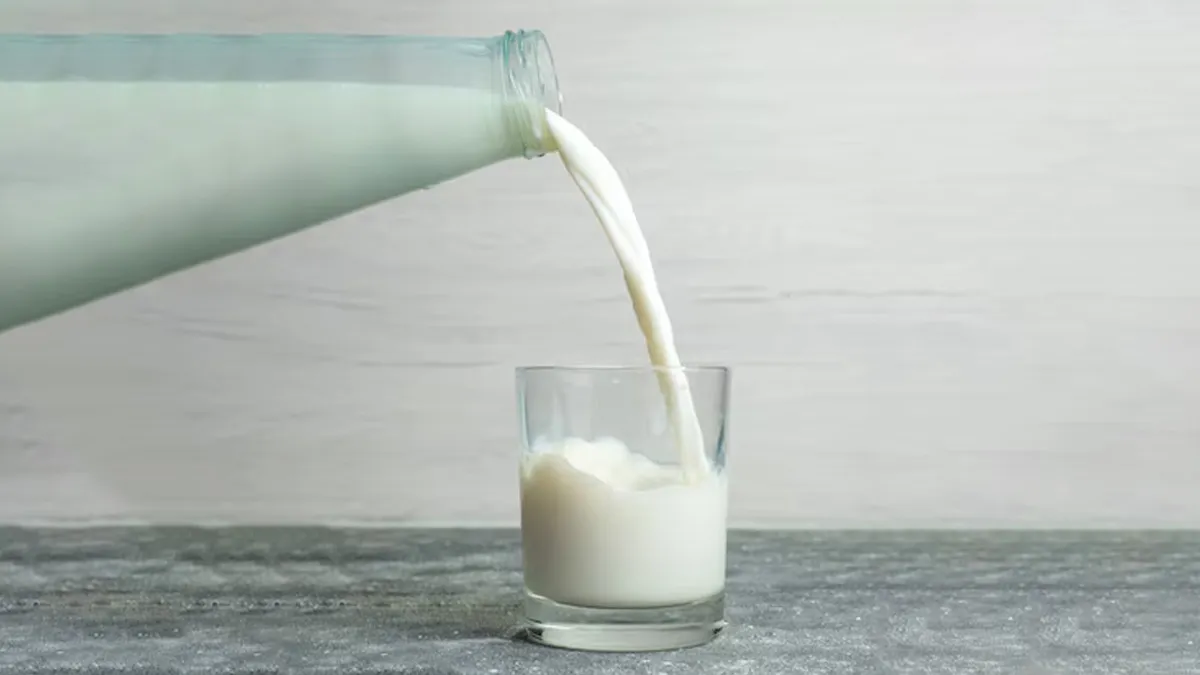
An old debate has surfaced again: Whether raw milk is beneficial for your health. There's no doubt that milk and its products are gold mines of nutrition. An excellent source of calcium, protein, potassium, and vitamin B12, milk is necessary for optimum development of teeth and bones. It's said to prevent osteoporosis and oral health ailments in the elderly population. But, despite so many benefits, should you drink milk raw? Ms. Reshma Nakte, clinical nutritionist and weight loss-lactation expert, in Mumbai, shares her inputs.
Apart from the aforementioned, milk is known to prevent several chronic diseases, such as obesity, high blood pressure, and Type 2 diabetes, shares Ms. Nakte.
"Despite nutritive and other health benefits associated with milk and dairy products, there is a potential public health risk associated with consuming raw milk and products made from unpasteurized milk," she notes, adding, that regulatory organizations like the Food and Drug Administration and the Centres for Disease Control and Prevention have also expressed their concerns about the same.
That's because "of risk of contracting milk-borne illnesses if the raw milk is contaminated with human pathogens and harmful bacteria, such as Salmonella, E. coli, and Listeria," the clinical nutritionist informs.
Elaborating, she says that such type of milk can be "a source of pathogenic microorganisms, which could cause damage to human health, or become epicentre of foodborne diseases."
Don't Miss: Lactose Intolerant: Cold, Hot, Or Warm Milk? What to do, Alternatives, As Per Clinical Nutritionist
Ms. Nakte cautions that immunocompromised patients, children, and pregnant women are at the greatest risk of developing these ailments.
However, not all is bad as raw milk has benefits as well. It contains "natural enzymes, beneficial bacteria, and bioactive compounds, which may support digestion and immune health," Ms. Nakte says.
Meanwhile, "the lactic acid bacteria in raw milk may support gut health and digestion," she shares, adding that it's handy information for "those looking to incorporate natural probiotics into their diet."
Ms. Nakte suggests pasteurization or heating the milk to a certain temperature may mitigate some of the risks associated with consuming raw milk. That's because the process "destroys pathogenic bacteria, yeast, mold, and most of the living microorganisms that can be found in raw milk, generally resulting in improved milk safety."
Pasteurization also inactivates "enzymes responsible for milk spoilage and reduces the number of “spoilage bacteria,” thus increasing the usability and shelf life of products."
"For those prioritizing safety, pasteurized milk provides similar nutritional benefits without the same risk of foodborne illness," she wraps up.
Don't Miss: Why You Should Be Drinking Milk Before Going To Sleep
If you liked this story, please share it. For more such articles, stay tuned to HerZindagi.
Our aim is to provide accurate, safe and expert verified information through our articles and social media handles. The remedies, advice and tips mentioned here are for general information only. Please consult your expert before trying any kind of health, beauty, life hacks or astrology related tips. For any feedback or complaint, contact us at [email protected].